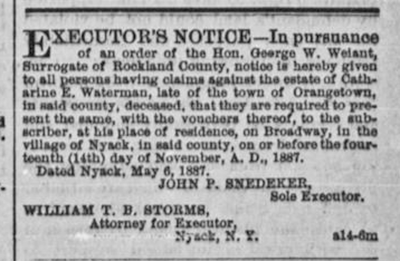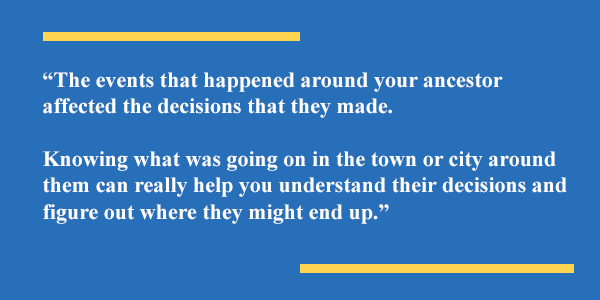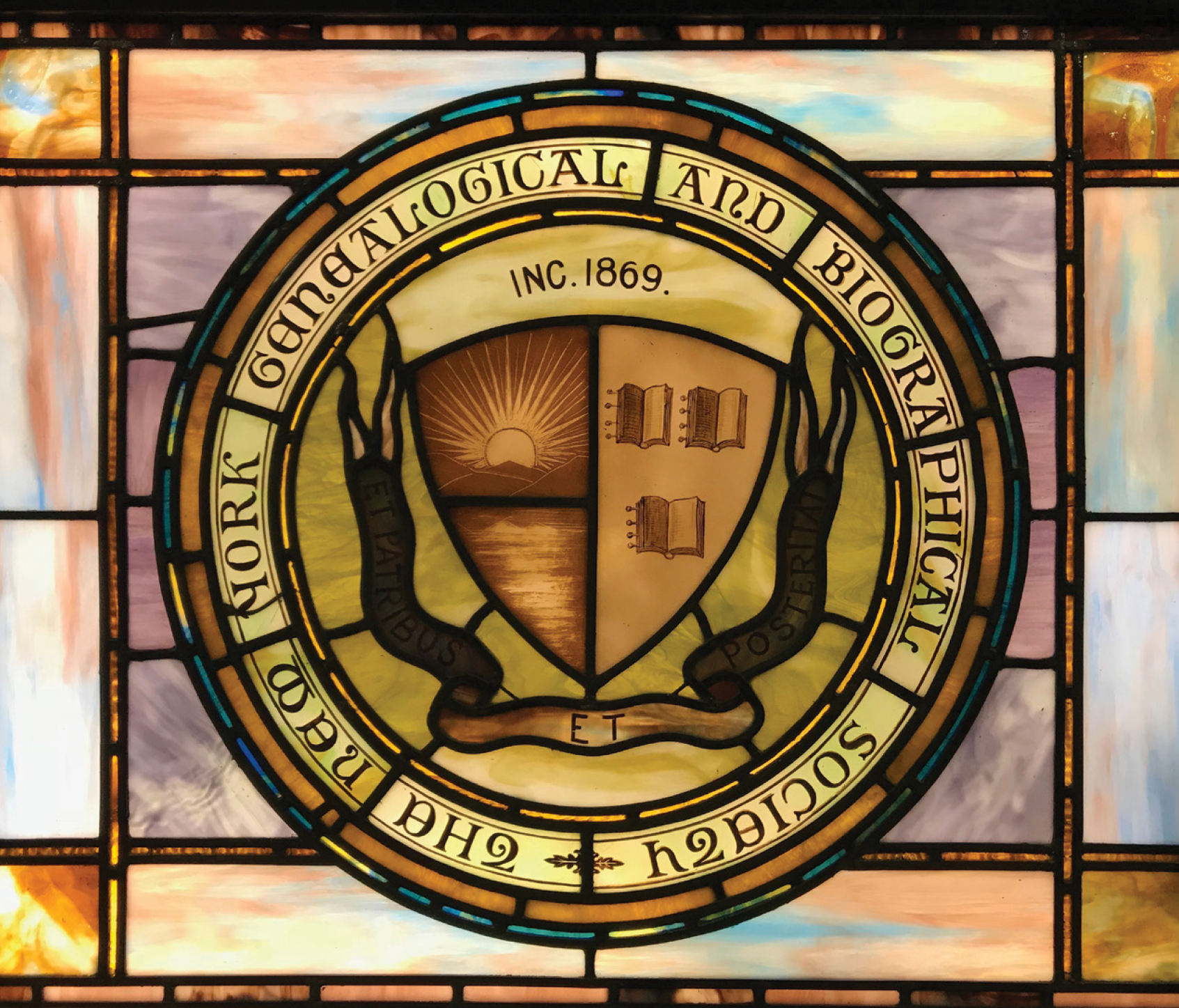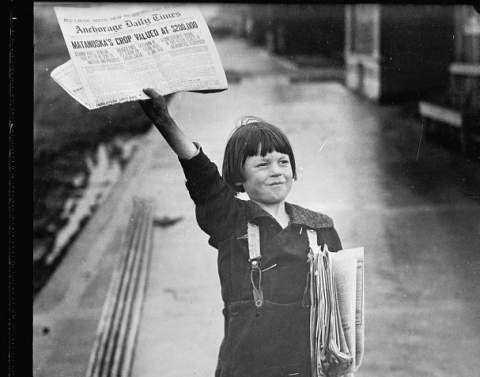If you haven’t searched for your ancestors in historical newspapers, now is an excellent time to start: It’s easier than ever to find and access historical newspapers, and they can hold some amazing - and quite surprising - information.
While documents like census records and vital certificates are essential for forming the foundation of your family history research, newspapers are a go-to resource that researchers should not overlook.
If you use the right newspaper search methods, you can locate a wealth of information about your family and their community - the kind of information that can’t be found in other documents typically used for genealogical research.
Once you’re ready to dive into newspapers, make sure to read our guide to Online Historical New York Newspapers - we cover the top websites for online newspapers (including many free ones) that researchers need to know about.
If you would like to learn why newspaper research is so valuable for the family historian, read on.
Newspaper stories are not limited by fields on a form

the information an author includes is unbound by
the form fields commonly found in other records.
Image via LOC.
Records like census records and vital certificates are usually created through somewhat standard forms - this limits the information gathered to only what the form asks about.
Occasionally we’ll see some interesting notes crammed into a margin, but that’s a rarity - typically sources derived from forms only provide the information that was originally asked for. That’s not the case with newspapers, and that’s a big reason why they’re such fantastic resources.
Each story in a newspaper begins with a blank page - even though the author is guided by a general topic, they are relatively free to include any details they feel are relevant.
This means that newspaper articles are like the mystery prize box of genealogical sources - you never quite know what’s going to be inside!
And this is a great thing because many researchers will uncover information and stories in newspaper articles that they would never find on another type of record.
Newspaper stories can contain biographical information - and not just births, marriages, and deaths
Newspapers can help supplement or complement information gathered from other records.
Many local newspapers contain birth and marriage announcements for their communities, as well as obituaries for those who passed away.
Finding your ancestor's obituary can be particularly helpful since it’s essentially a look back on an entire lifetime.
As mentioned above, since the narrative is the writer’s to mold, announcements like these can contain an amazing level of detail not found elsewhere.
The New York Family History Research Guide and Gazetteer notes that “in addition to birth, marriage, and death notices, newspapers include biographical material (occasionally with surprising detail), descriptions of social functions, school announcements, missing relatives, and even scandals, gossip, and crime that most families work hard to suppress.” (p. 115)
An excellent example of this is the image below. You’ll notice a useful marriage announcement, but there are other unexpected stories that one wouldn’t think of as “newsworthy” today, nonetheless made it into a paper of yesteryear:

surprising amount of personal news.
New Paltz Times., 19 June 1889
via NYS Historical Newspapers
Whatever the reason they were published, they give us a surprisingly detailed look into the lives of these people.
Descriptions of local events can lead to other avenues of research
Sections of historical newspapers that report personal news are really helpful, but there are also reports that apply more to the community as a whole - these descriptions of local events can be crucial clues and lead you to more records to investigate.
NYG&B Genealogical Researcher Ashley Lish, in her recent webinar Using Newspapers To Trace Your Family History, outlines some of the different kinds of events that will be of interest to researchers:
- School announcements
- Land transactions
- Gossip
- Travel news
- Probate court proceedings and legal announcements
- Local political news
- Business ads and news
She goes into detail on how each of these might help - for instance, Ashley says,
“One thing that I really love about New York research is that you find so many probate notices. These notices provide a lot of information that is really helpful - the date, the name of the administrator, the name of the deceased, and oftentimes the other people involved in the probate of the estate. When you’re trying to determine if a probate record exists in the first place, it’s a really great way to figure out when or where it may be available.”
Here's an example of a probate notice found in a newspaper. This kind of information is absolutely crucial to tracking down the related records:

via HRVR Historical Newspapers
Of course, there are many other announcements, ads, and notices that you may find. Each discovery could bring to light interesting and unexpected news about your ancestor and could be the beginning of an exciting new investigation.
Important contextual information
During her webinar, Ashley points out that newspapers “can provide information about what was happening in an area, which is always important because the events that happened around your ancestor affected the decisions that they made.
Knowing what was going on in the town or city around them can really help you understand their decisions and figure out where they might end up.”
This is a major reason so many researchers use newspapers in their family history research.
Even if you don’t find information directly related to your ancestors, by reading their local newspapers, you can really begin to understand their world.
The information you learn from just reading what was happening in the time and place they lived will help you begin to fully fill out the research you’ve done and begin to create a captivating story of their lives.

There are more online newspapers now than ever
The number of newspapers available online has skyrocketed in recent years. Far more are online (and free!) than ever before, and that number grows every month.
Small town and local newspapers are the best - they contain far more information on the people in their communities compared to larger metropolitan publications, which tend to prioritize national and international news.
Our Guide to Online New York Newspapers reviews all of the top newspaper websites on the web, details exactly what holdings of theirs relate to New York State, and indicates where you can find them online.
More Newspaper resources
-
Guide to Online New York Newspapers
-
Find Your Ancestors Obituary: The New York Times and Other Sources
-
Webinar: Learning More About Your Ancestors Through Newspapers (NYG&B members only)
About the New York Genealogical and Biographical Society

a registered 501(c)(3) organization devoted to
preserving, documenting, and sharing the history of
New York State families. Read more about our mission.
Since 1869, our mission has been to help our thousands of worldwide members discover their family's New York story, and there has never been a better time to join.
The cost of an Individual Annual Membership is less than six dollars a month, and includes the following benefits:
- Access to over 50 exclusive digital record sets covering the entire state of New York, including the fully searchable archives of The Record.
- A complimentary subscription to all of Findmypast's North American records, as well as U.K. and Irish Census records.
- Access to hundreds of expert-authored Knowledge Base articles and webinars to help you navigate the tricky New York research landscape.
- Exclusive discounts and advanced access to conferences, seminars, workshops and lectures to learn more about researching people and places across New York State.
To learn more or join us, please visit our member benefits page.
